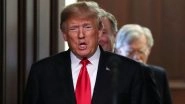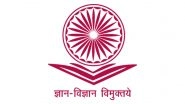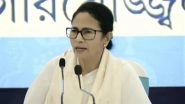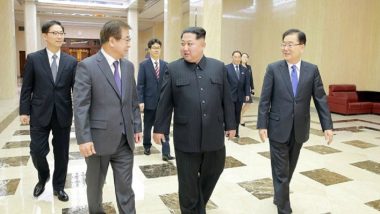North Korean leader Kim Jong-un hosted a dinner for senior South Korean delegates - the first time officials from Seoul have met Pyongyang’s leader since he took office in 2011.
The 10-member team from South Korea is in Pyongyang for talks aimed at restarting dialogue between the North, South and the U.S. The agenda of the two-day visit is to establish conditions to restart dialogue that will look at North Korea's nuclear arsenal as well as attempting to end the state of war between the U.S. and Pyongyang. Over the past year, North Korea has made considerable advances in its weapons program, leading to widespread talk of a possibly devastating conflict with the United States.
Impoverished North Korea and the rich, democratic South are technically still at war because their 1950-53 conflict ended in a truce, not a peace treaty.
After the first day of talks, North and South Korean officials have agreed to hold further talks in April and set up a hotline between Kim and South Korea’s president, Moon Jae-In. The first day of talks also resulted in declarations by the South Korean delegates that Pyongyang is interested in furthering dialogue including ‘de-nuclearization’. The statement read, “It (North Korea) made it clear that it would have no reason to keep nuclear weapons if the military threat to the North was eliminated and its security guaranteed.” The statement also announced North Korea’s decision to halt testing of weapons when talks were underway.
North Korea has not carried out any weapons tests since late November, when it tested its largest intercontinental ballistic missile. Inter-Korean talks began after Kim Jong Un said in his New Year’s address that he wanted to engage the South. The meeting between delegates of the North and South come after a blitz kreig series of diplomatic overtures by Seoul.
Current President Moon Jae-in has always been pro-talks with the North and initiated talks prior to the Winter Olympics held recently. Pyongyang has since sent athletes to participate in the Olympics, as well as a high-ranking delegation that included Kim’s sister, Kim Yo Jong. The participating athletes also walked under a unified Korea flag at the games.
The announcement was met with caution but interest in the United States. U.S. President Donald Trump took to Twitter soon after. “For the first time in many years, a serious effort is being made by all parties concerned,” Mr. Trump said on Twitter. “The World is watching and waiting! May be false hope, but the U.S. is ready to go hard in either direction!”
The caution extended by the U.S. is understandable because talks with North Korea over the past three decades have always veered off course and failed. There have been plenty of attempts at negotiations with North Korea before. The deals these talks produced, such as the 1994 “agreed framework” or the 2005 denuclearization agreement after six-party-talks, have ultimately broken down. White House officials noted that negotiations with North Korea over its nuclear program off-and-on for 27 years, have seen the DPRK break every agreement they ever made with the Americans.
As such, it remains to be seen exactly what North Korea is putting on the table when it comes for talks in April. Even if it sticks to the account put out today and halts weapons testing, this doesn't necessarily mean that its weapons program itself is dormant — indeed, just Monday, 38 North released satellite imagery that appeared to show signs that a North Korean reactor had resumed production of plutonium for nuclear weapons.
Some experts say the North’s outreach during the Olympics is an attempt to use improved ties with South Korea as a way to break out of diplomatic isolation and weaken U.S.-led international sanctions and pressure on the country. Other experts believe that North Korea has reached its objectives with its nuclear missile development and can now focus more on its other major national goal: economic development.
Another driver for Pyongyang’s willingness to come to the negotiating table seems to be the recent round of sanctions imposed by the United States. Reports suggest that a recent abundance of seafood in North Korea — which would usually be reserved for the Chinese market and sale in foreign currency — as well as reports from traders on the border between North Korea and China that trade is down and they are having trouble making ends meet, both suggest that sanctions are having some effect and that the Chinese have been more willing to enforce U.N. Security Council sanctions recently.
The meeting in Pyongyang has aroused interest but is far from a success because just before South Korean delegates were scheduled to meet their norther counterparts, a newspaper editorial published in the North read, “Hoping that the DPRK would abandon its nuclear programmes is as foolish an act as trying to wish seas to get dried up,” it said, referring to itself by its official name, the Democratic People’s Republic of Korea.
In addition, the nuclear weapons could be said to be Kim’s personal pride as he has celebrated and showcased various technical milestones through parades, the promotion of the scientists and technicians, and photographs and media statements. Hence it is foolish to assume or even consider that the DPRK would readily give up the nuclear programme as it achieves several objections. It reinforces the Kim regime's legitimacy and authority at home, creates an insurance policy for his survival and gives Pyongyang a potent chess piece in its goal of reunifying with South Korea.
(The above story first appeared on LatestLY on Mar 07, 2018 09:26 AM IST. For more news and updates on politics, world, sports, entertainment and lifestyle, log on to our website latestly.com).













 Quickly
Quickly


